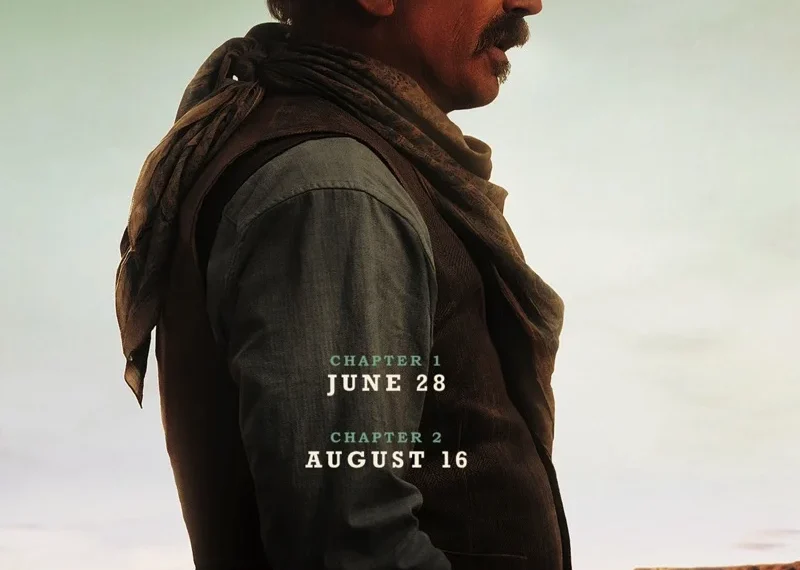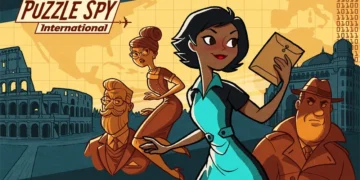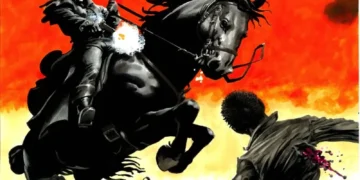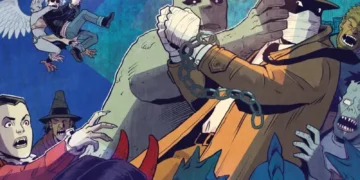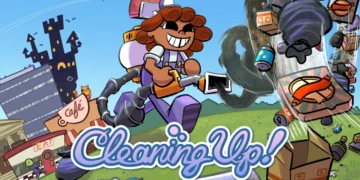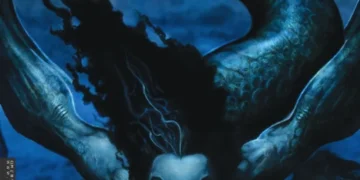Cast: Kevin Costner, Sienna Miller, Jena Malone, Abbey Lee, Sam Worthington, Luke Wilson, Giovanni Ribisi, Michael Rooker
Genre: Drama, Western
Director: Kevin Costner
In Irish Cinemas: 28th June 2024
The movie, set in 1859 across territories from Wyoming to Kansas, features majestic Mesa backdrops reminiscent of Monument Valley. It boasts a stirring 1950s-style musical score composed by John Debney, which amplifies Old West sentimentality even in moments of peril. A significant portion of the film focuses on the violence between settlers and Indigenous tribes, harkening back to an era when American Westerns were often blatantly racist. However, while “Horizon” strives to avoid these pitfalls, it does face challenges in its portrayal of Native issues. Despite its vintage Western aesthetics, one of the most beloved elements of classic Westerns is their mythic, well-rounded storytelling. In this regard, “Horizon” offers a unique and unconventional storytelling approach. Rather than presenting a cohesive Western saga with a strong narrative arc, Costner delivers three hours of loosely connected anecdotes. The film frequently cross-cuts between different groups of characters, offering glimpses into various situations that are swiftly abandoned. This approach provides a fragmented overview of life on the range, requiring the audience to independently piece together much of the backstory.
Multi-character dramas are revered in cinema, but “Horizon” fails to capture that magic. Instead, it feels more like the foundation for a miniseries than a standalone film. Much of the action is flimsy and lacks impact, with the story failing to build momentum or aim in a clear direction. Kevin Costner, who doesn’t appear until an hour into the film, brings a grounding presence as a gruff horse trader with hidden depths. However, his arrival only highlights the lack of substance in the rest of the movie. Ultimately, “Horizon” comes across as a prelude to a television series rather than a complete cinematic experience. It feels like an extended prologue, laying out background details before the central drama begins. This approach results in a significant letdown. As a film, “Horizon” is convoluted, ambitious, intriguing, and meandering, but it never manages to be genuinely moving. It spends too much time setting up narratives and focusing on minute details without leading to anything particularly compelling.
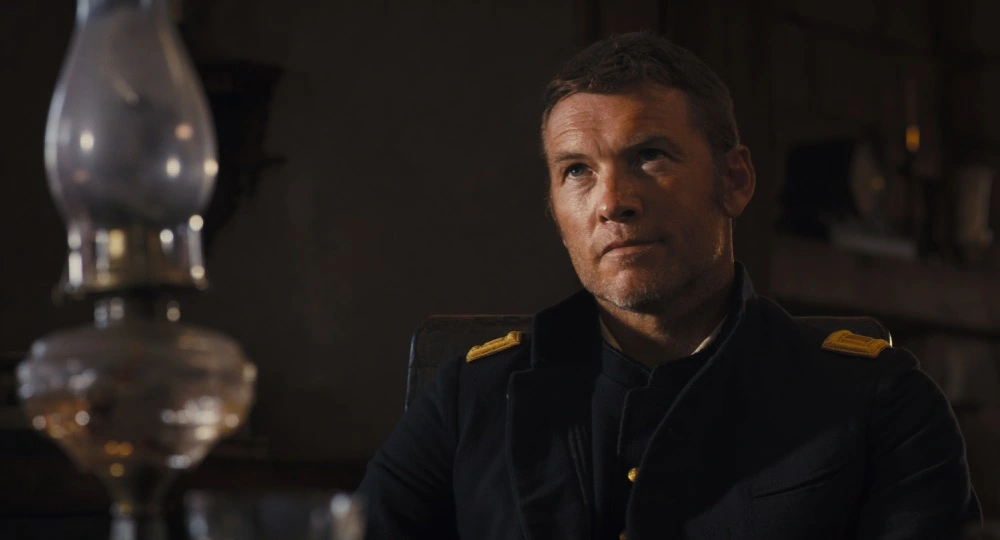
To his credit, Costner aims to redefine the Western genre beyond the simplistic white hat/black hat mythology that has become outdated. His attempt to introduce complexity with shades of grey and craft characters that defy easy categorization as heroes or villains is intriguing. Unfortunately, the execution often feels rushed, with action scenes that are both overproduced and underwritten. One significant setting is the settlement of Horizon, which is prominently advertised on handbills. Horizon is a place that’s not quite established yet, as new settlers arriving there often fall victim to attacks by the local Apache. A striking scene depicts an Apache raid that culminates in a catastrophic fire, shown from the perspective of Frances Kittredge (played by Sienna Miller) and her daughter, Elizabeth (Georgia MacPhail). The two hide in an airtight hole beneath their living room, using a rifle barrel as a breathing tube—a vivid and memorable detail. In the chaos, Frances loses her husband and son. However, this intense sequence is somewhat disorienting because it unfolds before the audience has had a chance to get to know the family, making the emotional impact less effective.
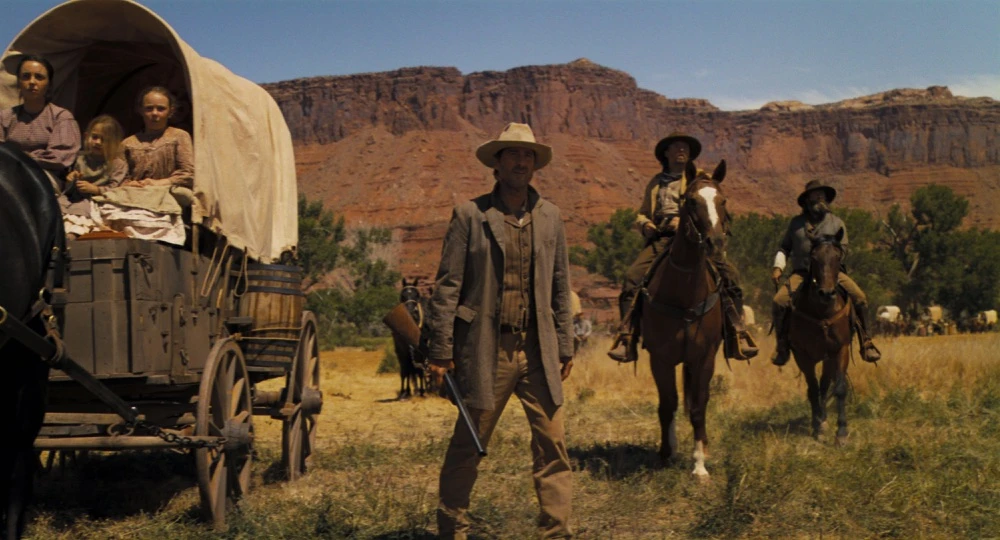
In this film, the Native characters are depicted as the attackers, but the story offers several extended scenes from their perspective. They are not simply portrayed as “the other” or the straightforward enemy. Two pivotal speeches address the core issue of the Indigenous tribes trying to resist the “white-eye” settlers encroaching on their land. An Apache war chief (played by Gregory Cruz) and a U.S. cavalry officer (played by Danny Huston) deliver these speeches, conveying the same bleak message. Despite the Native people’s justified resistance, they are destined to lose because the settlers will keep coming. As the film suggests, history is not on the Natives’ side. This perspective, set in 1859, presents a starkly definitive vision. While Costner’s portrayal is not unsympathetic to the Native characters, how fully developed they will become as the story unfolds remains to be seen. The narrative then shifts to a rundown town where Marigold (Abbey Lee), a lively prostitute with blonde ringlets, is looking after the illegitimate son of Lucy (Jena Malone). Lucy, having tried to kill the man who impregnated her, has abandoned her family. Her two adult sons, Junior (Jon Beavers) and Caleb (Jamie Campbell Bower), named Mean and Meaner, set out to find her. However, Marigold, now the boy’s caretaker (though the film doesn’t explain how this came to be), encounters Hayes Ellison (played by Costner). With his moustache, hat, laconic demeanour, and Colt.45, Hayes embodies a modern Gary Cooper. Costner portrays him as a man of few words, and his confrontation with the taunting Caleb is staged to resemble a realistic shootout. Hayes and Marigold appear destined for romance and eventually become a couple. However, the film leaves us wondering if we missed a crucial development in their relationship.

The film also includes scenes along a covered-wagon trail focusing on the Proctors, an effete English couple who have joined the westward movement. Their naïveté and charming sense of entitlement lead them to believe they don’t need to work, mistakenly assuming the other settlers are their servants. This misconception is quickly corrected by Matthew Van Weyden, the wagon train leader, played by Luke Wilson. Wilson delivers a strong performance, shedding his usual ironic demeanour. Meanwhile, Frances and her daughter find refuge at a U.S. Army encampment. First Lieutenant Trent Gephart, portrayed by Sam Worthington, captures Frances’ interest with his good looks and excessive gentlemanliness. While a few characters stand out as intriguing, none are truly memorable. “Horizon” falls short of being another “Lonesome Dove,” despite Kevin Costner’s efforts to eschew Western clichés and present a more authentic portrayal of frontier life and settlements. The film’s primary flaw lies in its script, co-written by Costner and Jon Baird, which lacks coherence. Instead of weaving the various storylines together, it presents them disjointedly, like a series of loosely connected vignettes. Hopefully, the narrative will gain clarity with the release of “Horizon: An American Saga — Chapter 2” later this year, followed by “Chapter 3,” and potentially more chapters after that. However, I sincerely hope this doesn’t happen. Even if there is more story to tell, the prospect of movies turning into extended television series is unappealing. Historically, most Westerns, including the more complex revisionist ones, were adequate, with two hours or less runtime. This brevity is often sufficient to tell a complete and compelling story.
Overall: 7/10

